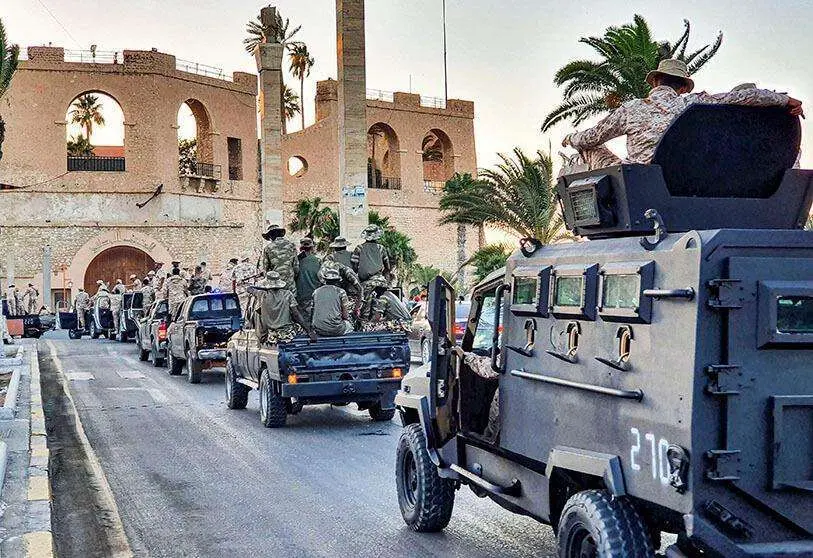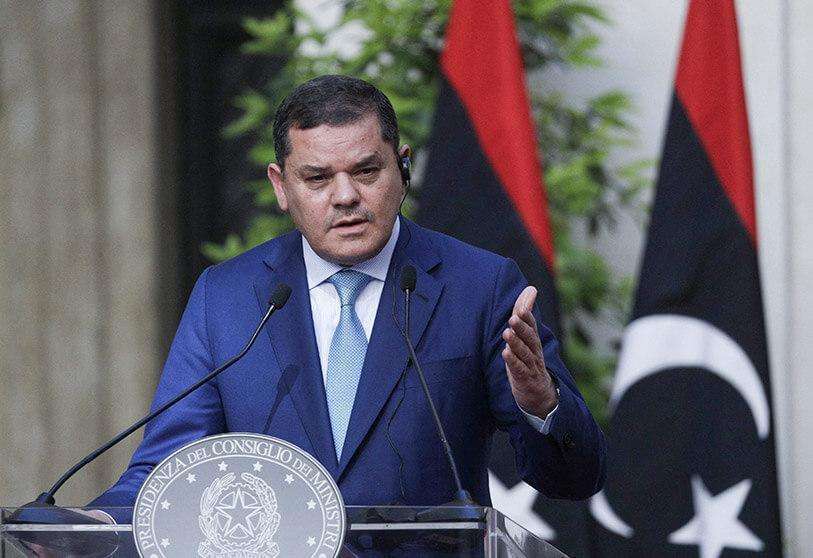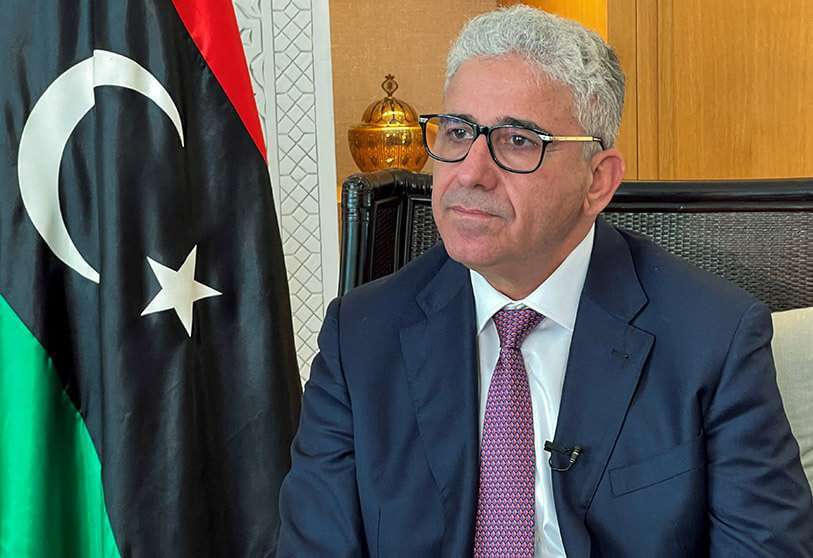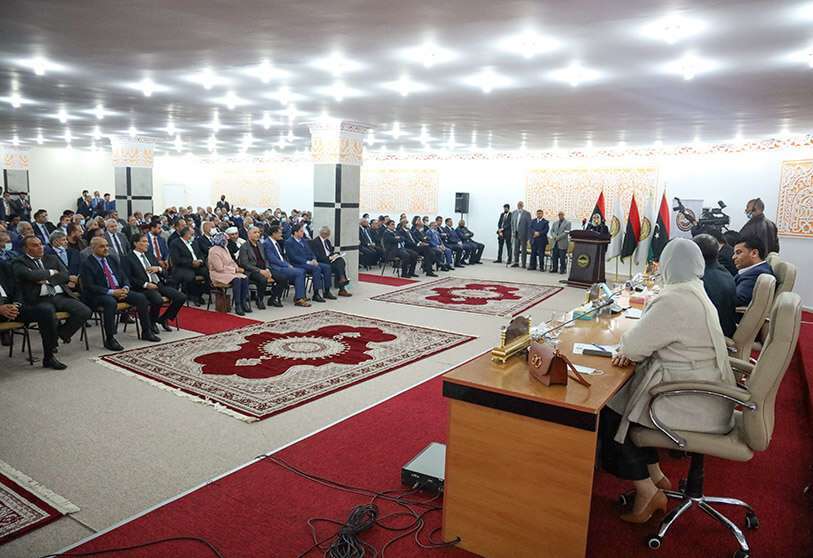Armed groups enter Tripoli to prevent Bashagha's seizure of power

Hundreds of vehicles with armed men entered Tripoli to oppose the rise to power of Fathi Bashagha, Libya's new prime minister appointed by the Tobruk parliament, in order to defend the interests of outgoing Prime Minister Abdul Hamid Dbeibé.
Dbeibé is the leader of the Government of National Unity that was elected on an interim basis to carry out the democratic transition in the country after the bloody civil war that has been raging for the past few years against the Government of National Accord led by former Prime Minister Fayez al-Sarraj, which was based in Tripoli and supported by the United Nations (UN), Turkey and Italy, and the Libyan National Army led by Marshal Khalifa Haftar, which has been receiving support from other nations such as Russia, Egypt and France and has been allied with the other eastern government in Tobruk.

The Libyan civil war broke out in 2014 between the sides vying for power after the overthrow and death of Muammar Gaddafi and intensified over the last few years, becoming an internationalised conflict with the participation of different countries interested in the geostrategic situation of the North African country and its resources, mainly oil.
Abdul Hamid Dbeibé was appointed acting prime minister in 2021 following the agreement reached by the opposing parties to carry out a democratic transition aimed at holding elections at the end of that year, but these were suspended because the necessary conditions were not met, and after the passing of the months, on 10 February the Tobruk Parliament decided to appoint Fathi Bashagha as the new prime minister, which the forces loyal to Dbeibé have opposed. It is worth noting that the Tobruk administration, linked to Haftar, has been receiving support from Russia, among other nations, and Dbeibé has close ties to Turkey as he has had extensive business dealings with the Eurasian country. The Tobruk parliament, linked to Marshal Haftar, considered that Abdul Hamid Dbeibé's mandate had ended because the elections scheduled for last December had been suspended, and thus ended up appointing Fathi Bashagha, former interior minister, as the new prime minister.

This movement in Tripoli by pro-Dbeibé groups followed the mobilisation led by commander Osama al-Juwaili, a Fathi Bashagha loyalist, who announced his intention to take power peacefully, as reported by DW news agency. The entry of armed groups into the capital also came after it was leaked that Bashagha had been in Tripoli since Friday, as reported by Al-Arab media.
According to information published by DW, the forces supporting Bashaga are made up of parts of the Al-Nawasi Brigades, affiliated to Mustafa Kaddour and hitherto linked to Tripoli, as well as groups from Al-Zawiya in the northwest and Warshafana.
The moves come at a time when the United Nations Support Mission in Libya (UNSMIL) is sponsoring negotiations in Cairo between the High State Council - which has shown its support for Dbeibé - and the parliament to agree on a constitutional basis for an electoral process, with no date set due to the new institutional division between the warring parties.

There are now fears of a possible military clash between forces loyal to Dbeibé and groups aligned with Fathi Bashagha, which would cause new suffering in Tripoli and, by extension, in Libya, which has become a failed state where a democratic process has not yet been carried out to hold elections and establish a democratically elected power to bring the North African country out of the difficult situation it is in after eight years of civil war and external interference by some countries that, according to various media reports and the media, have not yet been able to bring the country out of the difficult situation in which it finds itself after eight years of civil war and external interference by some countries that, according to various media reports and the media, have not yet been able to carry out a democratic process to hold elections and establish a democratically elected power in Libya, according to various media reports and analysts, even sent paid mercenaries to fight on the ground, such as militias from Syria sent by Turkey or members of the Wagner military company, associated with Russia.








